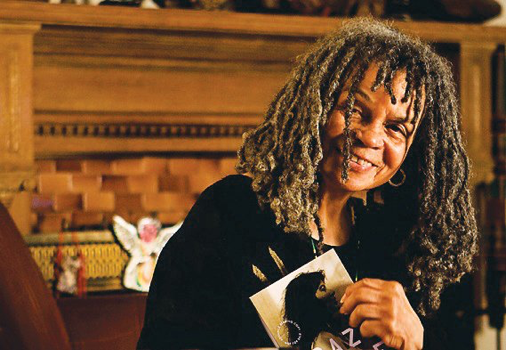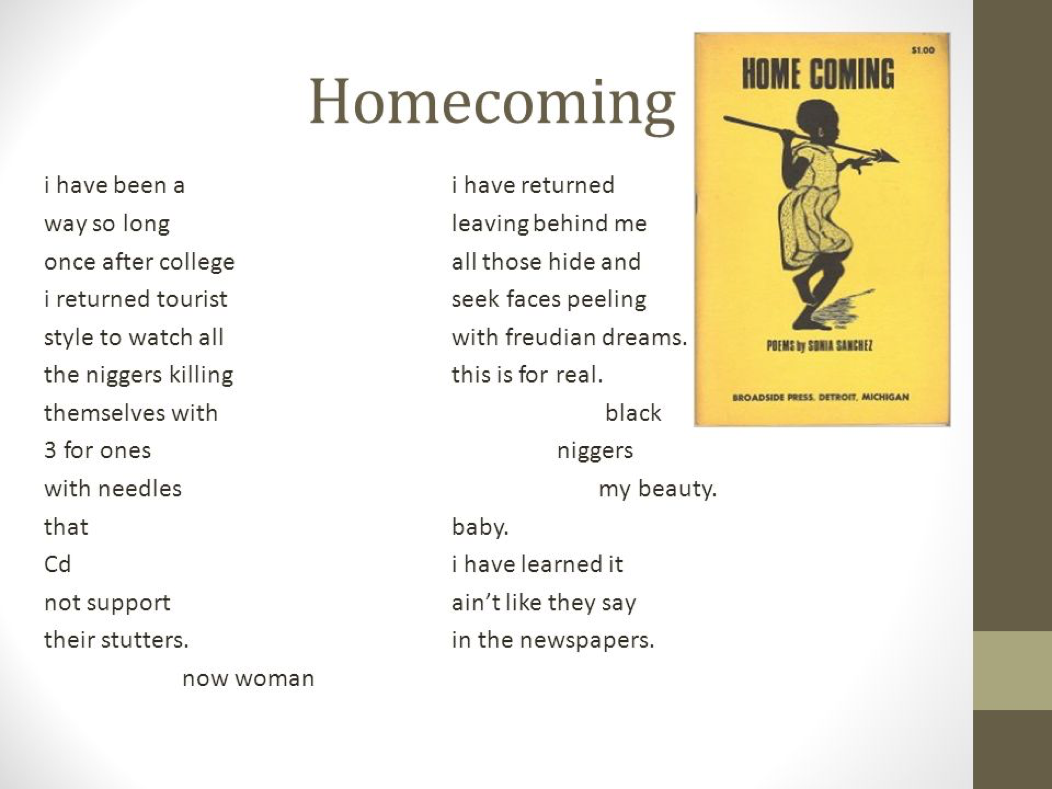|
Sonia Sanchez was born Wilsonia Benita Driver in Birmingham, Alabama in 1934. She lived with her grandmother and then her father in Harlem after her mother passed away. The passing of her grandmother at the age of six caused her to develop a stutter. She became introverted, but this gave her lots of opportunity to read. She became well acquainted with language and sound during this time. She used her time in college to develop her poetic voice. In 1955 she earned a BA in Political Science from Hunter College before moving on to post-graduate work at New York University. There she studied poetry and formed a poetry workshop which was attended by other well-known poets. Sonia Sanchez has taught at 8 universities and spoken at over 500. She became recognized as an influential voice of the Black Arts movement in the late 60’s as her book Home Coming came out. This is one of many books, children’s books, and plays she has written since that time. She was also Philadelphia’s Poet Laureate from 2012-14. Poem 1: "Homecoming"The first thing that struck me when reading this poem is format of the type. To me, this makes it much easier to feel the pauses where the text is separated even more so then the punctuation, which is also important. Another item of interest is the “Cd” in the eleventh line. This is the only capitalization in the work. I believe that this is a way to feel the stutter she mentions two lines later, especially when reading aloud. The first stanza states that the speaker has returned from one of two worlds that she knows. One being the world of white culture at college and the other being her home. As she returns “tourist style” she sees her home like an outsider might. She feels ashamed of her culture. She speaks of home poorly and uses the N-word in a negative connotation. The spacing creates a clear stop in the text where we are supposed to bring our eyes back up, if you will. The line before the second stanza begins tells us about her second trip home, now as a woman. She has grown and seen past this idea of shame that was imposed by the other world. She is ignoring voices that tell her there is something wrong with her and admitting her pride for who she is. This time, the N-word is used proudly in her identity that she does not deny. Poem 2: "Personal Letter Number 3"nothing will keep
us young you know not young men or women who spin their youth on cool playing sounds. we are what we are what we never think we are. no more wild geo graphies of the flesh. echoes. that we move in tune to slower smells. it is a hard thing to admit that sometimes after midnight i am tired of it all. This poem seems to be about a speaker who is telling us about the concept of aging and how it works in practice. We are reminded that “we are what we are” and that we need to accept this fact no matter what we may think we are. One day we will be finished exploring our bodies and making wild discoveries in that regard. We are also reminded of the notion of time as we know it in our twenty-four hour day. This can conjure up the thought of life as one full cycle of the clock. In fact, the repetition of “we are” at line seven made me think of clock bells/chimes, personally. It may not be easy to admit that we are older and eventually will die, but it is something we have to face. We do get tired of it all after midnight.
1 Comment
|
ENGL4302 Spoken Word Poetry & Pedagogy at LSU ArchivesCategories
All
|


 RSS Feed
RSS Feed